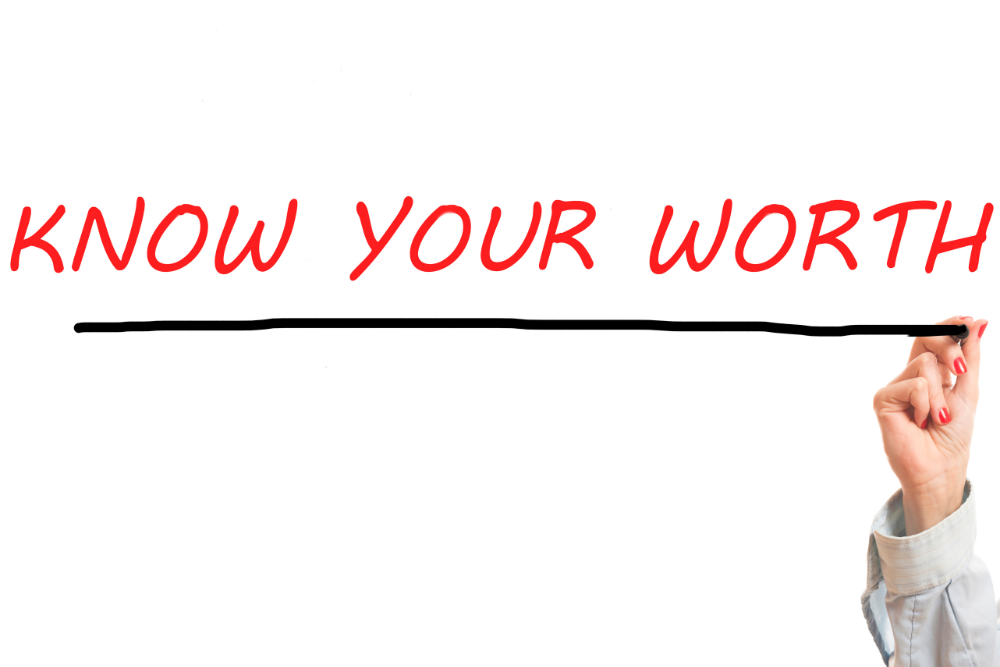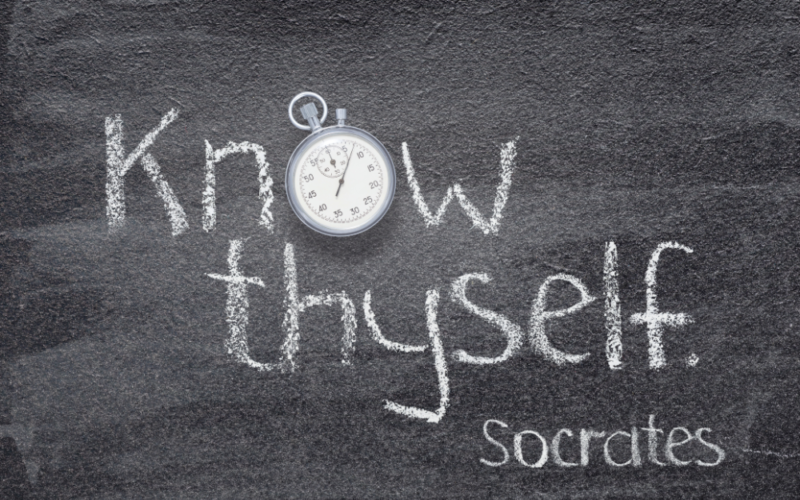The command “Know Thyself” exhorted by the wise ones from Socrates till today is a reminder to us of the measure of our reach. It is only when we see the possibilities within ourselves can we see them outside and around us.
Men who are stuck in the mere immediacies of life are lost in the haze of petty purposes. Those who dwell deep inside themselves are the truly liberated ones and even when they engage themselves in earthly pursuits they are humble and in the words of William Wordsworth remain “true to kindred points of heaven and home”. Thus, “Know Thyself” is the earliest command uttered by those sages who were preoccupied with helping us understand the mystery of life. The question then arises how can I know myself? Where is this self of mine and what is it made of?
When I look introspectively deep inside myself to find out what my ‘self’ can be, all I come upon is an inner mechanism of thinking, feeling, and sensing. These are the only states of my being that I am conscious of. But I find it hard to focus my attention for long even on these states as my concentration is continually diluted and my attention is robbed of its original objective in a given moment. But neither any of these states nor the images that take my attention away from them can be considered as my ‘self’. They have hardly any unity or uniformity to be termed as the nucleus of a bigger whole that my being is. The ‘I” to which these elements are attributable as a thing of cognition is barely discernible from any of the mental processes of which it is supposed to be the owner. As Buddha taught, this feeling of ‘I’ may just be an illusion.
Thinking about our states dilutes our experience of these states and we realize that each of these inner states of our being is a barrier which it is difficult to surmount. Mere introspection does not help much except rotating our attention between the knower and the thing that is being sensed or contemplated by him. This renders “Know Thyself” a very tough challenge. This is because the command seems to assume that there is a self to be known. But deep introspection helps us realize that there is no such off the rack self to be discerned. The self has to be built.

All human experience revolves around the happenings and entities that are independent of us and how our will interacts with these to achieve the results it desires. The self in us is an abridged countenance of what we live through. When I am fascinated by the beauty of the stars, enchanted by music, smelling a fragrance, or touching the hand of a loving friend, I am experiencing these things directly and my ‘self’ is absorbing these elements causing what I experience. This incorporates the objective world I experience into the wealth of my ‘self’. The more varied and larger the scope of our experience the more immense our ‘self’ becomes. What then follows is gaining knowledge of the process that rendered these materials or happenings an organic part of our being. This is rather similar to how a bee sucks honey out of the plants and flowers. Similarly, self needs to be sucked out of the world of happenings and objects by life.
In the eternal flow of Time, the ‘self’ signifies the part of stream illuminated by the light of our life. As Ali Ibn Abi Talib explains, I am the whole universe because I am the acme of its evolution. Therefore, I embody the essence of its mystery, its glory, and its majesty. But in order to be all that, I have to realize my destiny, without which my being is reduced to some petty objectives and carnal cravings. Hence, Ali explains that it is only by enlarging the scope of our interface with the world that we can feed our ‘self’ to grow. By a persistent effort I can make it grow till the ego in me, like everything else around it, dissolves into it. Instead of being conditioned by the forces of Nature, a man can reflect eternal thought and action in giving a new direction to these forces and thus rising above his circumstances by transcending the external determination of his personality by the forces of Nature and Society. Ali indicates that the infinity of Time and Space is given to us for its free use and we are free to make of ourselves what we can, which means nothing is excluded from the realm of possible for us.
However, the reality at the ordinary human level like mine is that, to varying extents, we are the products of the world we inhabit and are influenced by our heredity as well as the ideas and values that abound in the social milieu where our lives are shaped. But then, the most decisive advantage bestowed upon man among all creation is the power to think and reason. Whatever our thought’s limitations in discovering the philosophical truth, its utility in acquiring mastery over the forces of Nature is beyond doubt. Only the forces of rational criticism can dismantle the biases, preconceptions, and primitive tenets that thwart the progress of humanity.
However, it needs to be acknowledged that our knowledge has certain limitations as an instrument for discovering the metaphysical truth. That’s why the riddle of the Universe can probably not be fully solved by us. How is man’s existence related to universal force of life? How is man integrated between the world of Nature and the world of Spirit? What is man’s destiny in the entire scheme of things? These and many other such questions are incapable of being answered from the level at which human knowledge is currently placed. Any philosophy which is dogmatic about the finality of answers to these questions cannot be rationally defended. Thus Goethe’s assertion still rings true after more than two hundred years: “Man is born not to solve the problem of the Universe, but only to find where the problem begins and to restrain himself within the limits of comprehensible”. This means that we ought to be mindful of limitations within which the rational faculties can productively function. But as the impossible knowledge continues to shrink we realize that our priority in this great cosmos is the life and destiny of our specie and our planet. Which means our primary duty is with the human race including untiring efforts for ceaseless improvement in the process of life on earth.

Human knowledge is provisional and continues to recreate itself. In that constant recreation lies the genesis of progress. Hence, it is our obligation to keep the spirit of inquiry alive to do our best to discover, to reason, and to understand. As the history has proved, no answers can be taken as the final verdict on the nature of Reality. Instead, to learn is to live. This is how, from age to age, earthly life continues to evolve into a less imperfect expression of the divine idea. To me, “Know Thyself’ is the aspiration of human soul towards progress in ascending from the finite to the infinite, from the known to the unknown, and from actual to ideal. The desire to know is ingrained in us and to learn to know is what energises our efforts to discover the Truth. Only in discovery and change is Man’s being made known.







